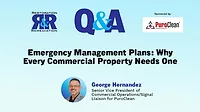Why Time Management Is an Illusion
With all of the conveniences of smart phones, computers and the web in today’s modern world, it’s easy to feel pressed for time and overwhelmed. It seems that all of the conveniences we have at our fingertips haven’t really alleviated work or provided us with the freedom we so desperately need and want. Most of us are “on” 24/7, and it’s taking a toll on our relationships, work and health. Our bodies, emotions, minds and spirits are suffering, which causes many of us to look for time management solutions to ease the pressure.
My experiences personally and as a business consultant have shown me that time is not the enemy and the idea of “time management” is an illusion. Many of the clients with whom I have worked over the years are looking for a “magic bullet,” a time management approach that will allow them to be productive and happy while getting more and more accomplished each day. While there are certainly tips available for making our days more productive, that magic bullet doesn’t exist. Neither does the idea of time management.
As much as we would like to believe that time can be managed, it’s not possible to add minutes to an hour, hours to a day or days to a month. Rather, as Jim Loehr and Tony Schwartz write in The Power of Full Engagement, what we need to manage is the quantity and quality of our energy: “Energy, not time, is the fundamental currency of high performance.”
So why do some of us continue to pile work on ourselves only to become more tired, frustrated and stressed? There are a few different scenarios that might explain this. Our first scenario involves those who are unable to say “no.” People-pleasers or those with personalities that are hard-wired to help others often ignore their own needs and lack boundaries when others ask for help or dump work on them. It’s a difficult habit to break but one that must be broken if they want to be healthy and productive. Remember the oxygen instructions on an airplane: place the mask on yourself first to ensure you are able to help others.
A second scenario includes those who use procrastination and poor management skills to fuel last-minute work. As their stress levels mount, adrenalin levels rise. There’s nothing like a high dose of adrenalin - nature’s version of Red Bull - to provide the kick of energy needed to accomplish work at the last minute. That natural energy burst has its place in certain circumstances. However, relying on a constant supply of adrenalin to complete your daily activities has the potential to result in long-term consequences, including poor health, hormone imbalances and chronic illness. The sad fact is that our culture in the United States is hooked on adrenalin, and it’s taking a toll on our health while also damaging our personal and work relationships. When we are “stressed-out,” we toss that stress toward others like a hot potato, and in many cases, the receiver of that hot potato tosses it back at others.
A third scenario involves those who are “crisis-creators.” These individuals pile work on themselves by utilizing drama and fueling crises in a purposeful way. I have worked with individuals who thrive by creating crises and the resulting drama, which provides them the opportunity to swoop in to fix the situation and save those involved. It’s like being a superhero in the workplace. Just like Superman, Spider-Man, and Wonder Woman, if a threat or danger exists, even one they created, they come in and “save the day.” It’s a great feeling, being a hero, but it has the potential to damage work relationships while demoralizing your workforce.
Time management is an illusion because the way to become highly productive and happy lies in correcting the behaviors by understanding and managing yourself, not your time. My advice to alleviate people-pleasing and procrastination is to stop trying to manage a long “to do” list. Instead, the best solution might be to remove some of your “to-dos,” delegate more and learn to say “no.” If being a hero is appealing, keep in mind that you can’t be the hero if you are also the villain who creates problems for you to solve yourself. If generating a crisis or capitalizing on drama is necessary to feel good at the end of the day, then deeper self-examination will help you determine what the payoff is that fuels those behaviors.
Set aside reflection time to explore what fuels and depletes your physical, emotional, mental and spiritual energies. Consider whether you are over- or underutilizing your energy expenditure. Overuse can lead to exhaustion, yet underuse can lead to boredom and apathy. Set goals that enable you to gain strength without burning out. And lastly, make a list of the activities and routines that rejuvenate you and provide joy. While it may appear selfish to put your own energy and needs first, research confirms that learning to manage energy more efficiently has the ability to transform not only ourselves but our organizations as well.
Looking for a reprint of this article?
From high-res PDFs to custom plaques, order your copy today!







